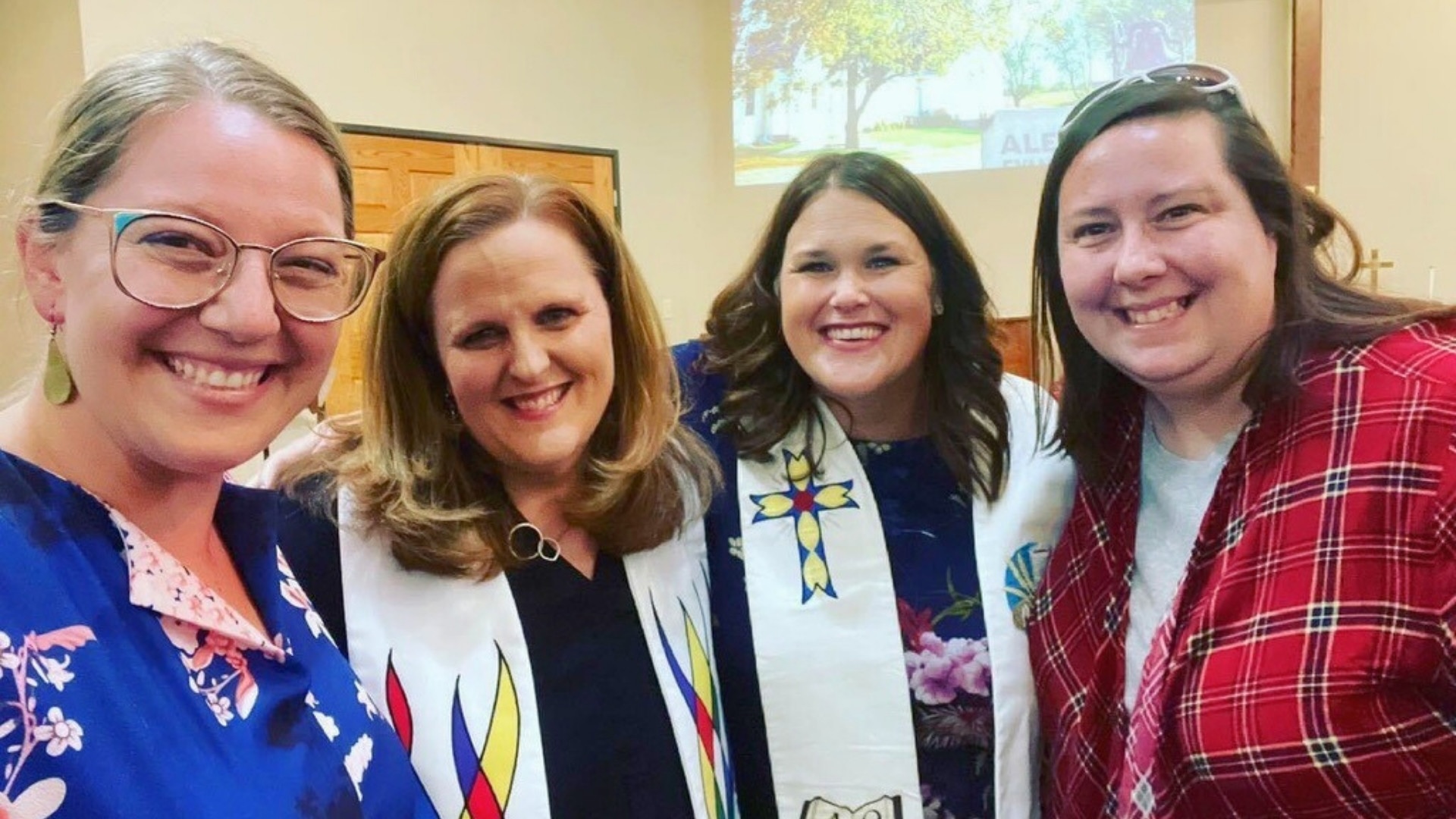What Qualities Define a Good Leader? Covenant Pastors Share Lessons Learned from The Trenches
As we focus on developing new and future leaders in the Covenant, the Companion consulted Covenant ministers about what they’ve learned on the subject. We went to Facebook and asked, “What’s the most important leadership principle you have learned in the course of your ministry? And what have you learned about leadership from your own mistakes?” Here is a selection of responses we received, all used by permission.
“Watch for where God is moving in your community, in the lives across the table from you. Call it out. Join them and empower them to follow God’s nudges. Quietly do the heavy lifting of preparing the space, laying the groundwork, being consistently present so that when people are ready to encounter Jesus or invite friends to Jesus, we’ve done all we can to remove barriers or make connections.”
Kirsten Wagenius | St. Cloud, Minnesota
“Recognize, name, and address the anxiety in the system. Lesson learned: I can be the source of anxiety.”
Devyn Chambers Johnson | Springfield, Virginia
“Listen—to the Holy Spirit, to people. Exegete—the culture and your c
ommunity as well as the Bible passage you are teaching or preaching. I’ve learned that it’s not about me. And I’ve learned who I can trust and to trust them and share leadership with them.”
Jane Spriggs | Monticello, Minnesota

“It is important to develop a culture of trust where giving feedback is done in a spirit of care and unconditional acceptance. I’ve learned that it is completely okay to say, ‘I don’t know, let’s figure it out together.’ Be sure to understand a problem before coming up with solutions.”
Dieula Previlon | Carrollton, Texas
“To be a good leader is to be a good listener and a lifelong learner.”
Debbie Montzingo | Mountlake Terrace, Washington
“Learn to lose well. Winning is easy, but losing leadership arguments is a great test of character, and I’m still on the curve.”
Don N. Johnson | Black Mountain, North Carolina
Erwin McManus says, “Leadership is about creating environments.” I really like that. The environment we create can foster so much good or so much bad. It can allow the people around us to flourish or to flail.
Chad McDaniel | Arvada, Colorado

“A great sense of humor, tolerance of stupidity (both my own and others’) and really thick skin! Cut yourself some slack, and don’t assume you are indispensable.”
Eva Cudmore | Cromwell, Connecticut
“Be humble and kind. Listen. Say you are sorry.”
Kurt Fredrickson | Simi Valley, California
“Healthy, trusting relationships are the most important capital a person can have. So invest in those relationships. A corollary is, learn to love everybody, but don’t spend too much time chasing after perpetually disgruntled people. From my mistakes I’ve learned to trust myself more. But I also need good people around me who can speak hard truth when I need to hear it.”
Dan Whitmarsh | Lakebay, Washington

“Leadership requires suffering. Know who you are—and aren’t.”
Brian Hui | Union City, California
“Leadership as a spiritual gift must be diligently leaned into while allowing the Holy Spirit to form it according to his fruit so that it is indeed an act of service. Leading well is an act of service to others, shaped by continually becoming more of who Jesus made us to be while avoiding the risk of making servant leadership about oneself and one’s personal desires. Whether in a position of leadership or not, whether with the gift of leadership or not, it is most energizing and fruitful when it is the
result of abiding in the Vine.”
Joel Rude | Blue Jay, California
“If you want to have influence, you need to develop trust. Many leaders limit their influence by seeking power instead of trust. This tends to backfire and keep individuals from having the influence they desire. Also, avoid triangulation not conflict. In the midst of conflict talk to people not about them. Direct communication is the key to having difficult conversations that build trust.”
Doug Bixby | Attleboro, Massachusetts

“Listen first, middle, and last. Ask questions. Actions and plans will then come naturally in collective wisdom and the spirit.”
Jolene Carlson | Austin, Texas
“Consistency helps develop trust and understanding from others. It enables others to trust you. I’ve learned not to assume that people understand your vision. It is something that needs to be talked about on a regular basis. How people act and react will determine whether they understand.”
Mary Ann Owens | Lithia Springs, Georgia
“Be ruthlessly honest with yourself about the shadow side of your strengths. Apologize when you get that wrong.”
Beth Ernest | Caledonia, Michigan
“Good leaders care well for people. The saying “People do not care how much you know, until they know how much you care” has been first and foremost for me. I don’t ever want people serving in the church to feel used or to wonder about my motives for them. I want them to feel genuinely cared for and valued as a person. Second, I have learned to focus on cultivating and noticing the gifts and skills of others, so they can be empowered to lead. This is not always easy, and I have often struggled within myself to let go and let someone else lead through their gifting.”
Kari Jacott | Champlin, Minnesota
“Humility, patience, and cooperative leadership. I find that churches operate most effectively when the people of the church do most of the ministry and make most of the decisions. Even if the direction we end up going was originally my idea, it’s best if people in the church embrace it as their own idea. Helping people discover truth themselves is always better than handing it to them (or forcing it on them). Frankly, there often is not only one best direction for the church to take, and even if there is, I may not know what it is. So we discern together, arrive at decisions together, and own the outcomes together.”
Mike Mirakian | Rockford, Illinois
“Henri Nouwen writes in In the Name of Jesus, “The leaders of the future will be those who dare to claim their irrelevance in the contemporary world as a divine vocation that allows them to enter into a deep solidarity with the anguish underlying all the glitter of success, and to bring the light of Jesus there.” Nouwen goes on to say that he is “deeply convinced that the Christian leader of the future is called to…stand in this world with nothing to offer but his or her own vulnerable self.” If our people are called to “love one another as I have loved you so that the world will know,” what if our first call, above all else, is to embody that sacrificial love that flows from knowing we are loved by him?”
Kevin Butcher | Grosse Pointe Farms, Michigan

“Learn to shut up and really listen without forming an opinion while someone is talking. Be present. I have learned to apologize a lot.”
Tiana Coleman | Chicago, Illinois
“I’ve had to learn to be willing to be vulnerable about my own struggles in following Jesus. People have identified far more with me when I’m honest about how hard that can be—especially times I’ve failed—than when I’ve tried to provide instructions without a story. A visible path of growth in my own life has helped my congregation grow. Second, tired leaders are not effective leaders. Get good rest, for which you’ll have to make time. (It will not be handed to you—you have to wrestle for it!)”
Chris Logan | Berlin, Connecticut
“Lead with the intent to allow those around you to succeed in their positions—in a way they define as success.”
Chad Melton | Alexandria, Minnesota
“Humility—we are, after all, called to be servants first and foremost. Ask questions, starting with questions of curiosity before confrontation. Remember to say thank you often, especially to those who work behind the scenes or faithfully do the same work week after week. Live what you preach, and do what you ask others to do. And look at conflict as opportunity for growth rather than reason to run.”

Linda Williams | Washington Depot, Connecticut
“Cultivate a shared leadership language and help people use it. What is our common language for who we are, who God is, where we are headed, and how we are going to get there? How do we help people speak to one another rather than over, around or, even worse, through others? How do we give voice to those who have not been able to find their voice, do not believe their voice is worthwhile, or have had their voice silenced? And the flip side: how do we help others recognize when they are using their voice
in unhealthy ways?”
Andy Sebanc | Surrey, British Columbia
“Building trust is essential. Every interaction (meeting, call, email, text) is an opportunity to build or destroy trust—one or the other will happen, so it is best to be intentional about consistently building trust. It is best to be a humble leader, who is transparent and will quickly admit failings and shortcomings (others often see them before I do). Failing to do so causes problems in building that trust.”
Ben Schoffmann | Eagle River, Alaska
“Faithful leaders empower. Fearful leaders control.
Faithful leaders honor and name contributions from others.
Fearful leaders either don’t see or hide their dependence on others.”
Liz Mosbo VerHage | Seattle, Washington

Find ways to make other people look good. Check once in a while to see if anyone is actually following. If no one is following, you aren’t leading. Learn to say, “thank you” and, “I am truly sorry” a lot, and mean it.
Jo Anne Taylor | New Ulm, Minnesota
“It is important to have confidence in my own calling. But it was wrong for me to be so eager for approval that I tried to do everything myself, robbing others of opportunities to serve, the body of their gifts, and myself the chance to work with them.”
Susan Gillespie | Chatham, New Jersey














